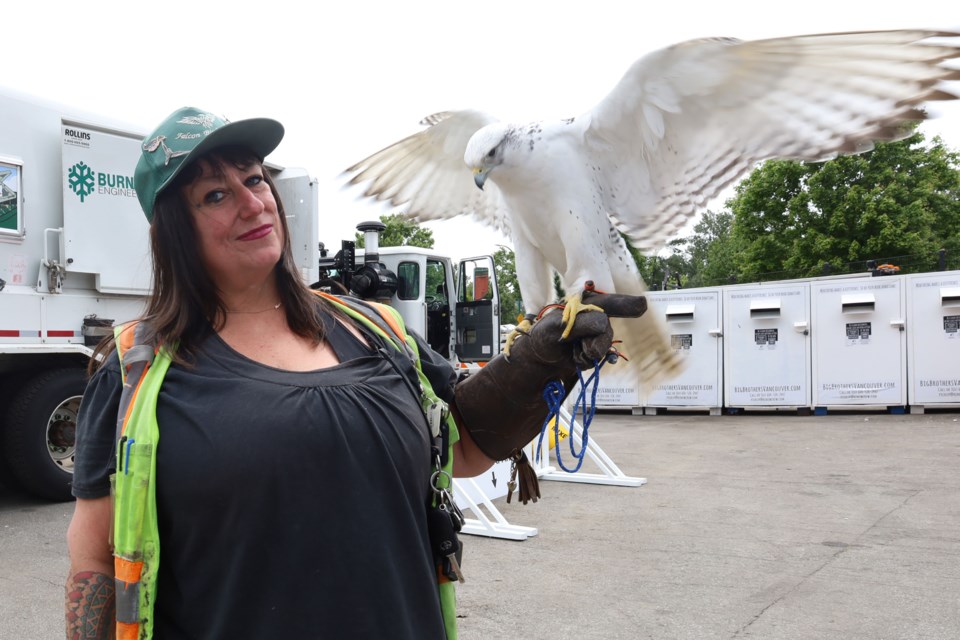The City of Burnaby employs nearly 4,000 workers.
Some of them are birds of prey – literally.
The birds are enlisted to keep “nuisance wildlife” away from the Eco-Centre recycling depot.
Mostly crows and seagulls, these pest animals feast on the pile of food scraps collected at the centre.
Crows will frequently pick up bones from the pile and drop them from a height, trying to crack the bones open for the marrow inside, denting parked cars underneath.
“There’s always chicken bones on the top of my car. They can cause quite a bit of a mess,” said Lisa Look, an environmental services officer at the City of Burnaby.
The birds perch all around the Eco-Centre: on fences, roofs, cars and trees, according to Look. The abundance of crow and gull droppings is also a concern.
Enter Betty White, a snowy white gyrfalcon who scares the pests away.
She doesn’t even need to attack the pest birds. In fact, Betty White is blind and doesn’t fly.
Her presence alone wards off the clever crows and gulls.
Laura Lankford, a bird control officer with Falcon Bird Control (also known as Radical Raptors), has a roster of falcons and Harris’s hawks, including Betty, that guard the food scraps.
If one of the hawks does catch a bird, Lankford uses a catch-and-release system. With avian flu particularly worrisome this year, she’s careful to keep her birds healthy.
Look said there are far more crows and gulls around when the hawks aren’t present.
“I’m done here at 5:30, and the hawk’s already left. There’s so many more birds hanging out at that time,” said Look.
While the crows and gulls might be a nuisance to humans, Lankford respects that this is the bird’s original habitat.
“We’re in their environment. They’ve been migrating here for centuries. … This (the food scraps) is like having a McDonald’s right across the street,” Lankford said.
“We’re just trying to live with them, just keep them away from people … That’s why it’s important, I mean, it’s nature.”



